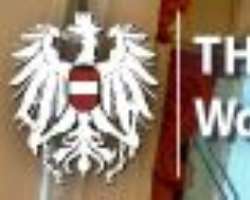Lopatka: Award for Austrian wind power project in Cape Verde

VIENNA, Austria, July 12, 2013/African Press Organization (APO)/ -- With the wind power project in Cape Verde, Austria is contributing towards the sustainable development and energy independence of the island state. "This showcase project of Austrian Development Cooperation has now been awarded the renowned Ashden Award for Small Island Developing States 2013 by the World Bank", State Secretary Reinhold Lopatka said.
Since 2010, Austrian Development Cooperation has been supporting the Economic Community of West African States (ECOWAS) in implementing its policy for renewable energy and energy efficiency, with an emphasis on environmental compatibility and social justice. "Many developing countries have a huge potential when it comes to renewable energies, yet a great number of technical, financial and institutional barriers remain to be overcome", Lopatka explained.
In 2010, the ECOWAS Centre for Renewable Energy and Energy Efficiency (ECREEE) opened in Praia, the capital of Cape Verde. Austria provides assistance to all 15 West African states to ensure that as many people as possible have access to affordable forms of energy that have no health detriments, all from renewable energy sources. "In West Africa in particular, renewable energy plays an important role in getting on top of the energy crisis as well as helping to stem the tide of climate change", the State Secretary emphasised. "We are proud that our partners in Africa are counting on Austrian know-how. Cape Verde is a prime example of how the potential of wind power may be used effectively”.
The successful project in Cape Verde is a step on the way towards greater energy independence for the country. "These wind farms provide clean energy for 425,000 people", Lopatka said. "By March this year, no less than 96,000 MWh had been fed into the Cap Verde grid through wind energy, saving 22,000 tons of diesel and 68,000 tons of CO2 emissions, and even motivating Cap Verde to raise its goal of producing 50% of its electricity from renewable energy sources to 100 percent."
As many other island states, Cap Verde until recently was dependent on costly diesel imports. As part of the Cabeolica project, wind farms with an overall output of 28 MW were set up over the last three years on four islands. "This is the first large-scale public-private partnership in the wind energy sector in Sub-Saharan Africa. Austrian Development Cooperation was a key factor in the success of the project within the framework of the Private Infrastructure Development Group (PIDG)", Lopatka concluded.
